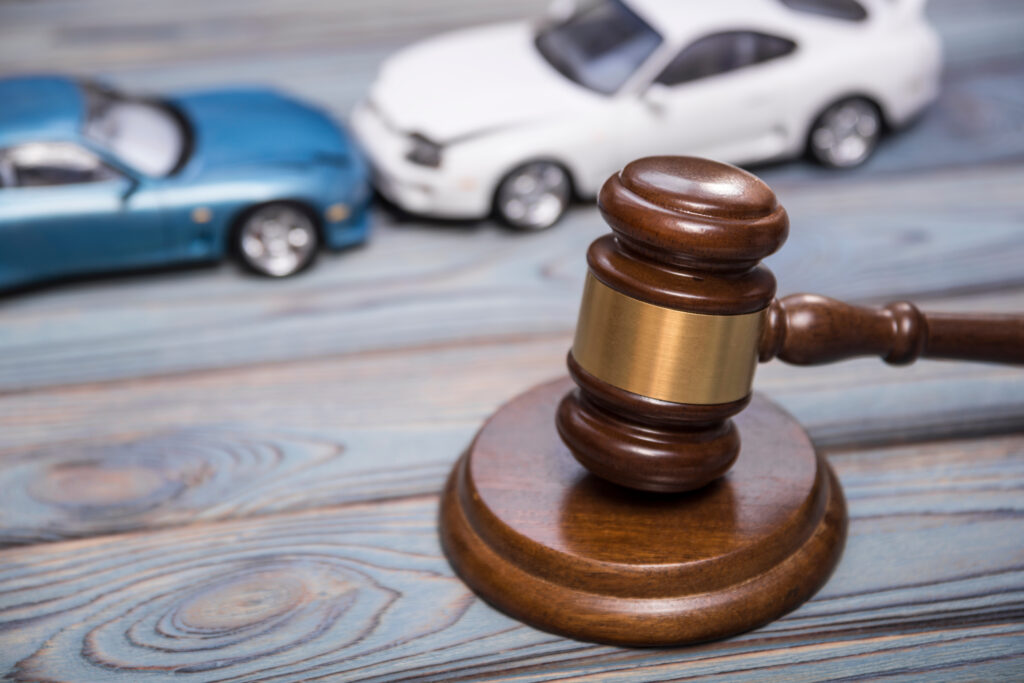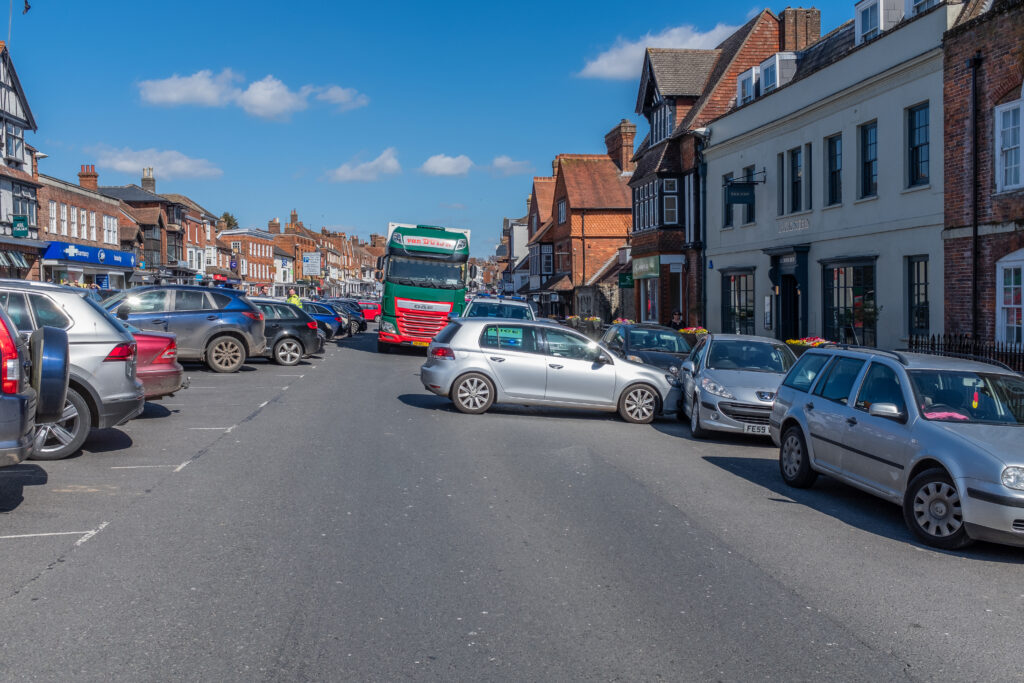If you've suffered an injury in a T-bone car accident, one of the most important questions is who was at fault. Determining fault has major implications for insurance claims and potential legal action. Let's go over how fault is typically decided in T-bone collisions and why it's best to speak with an experienced car accident attorney in Tacoma to understand your rights and options.
What is a T-Bone Accident?
T-bone crashes happen when the front of one car smashes into the side of another, creating a "T" shape at the point of impact. These crashes commonly happen at intersections when one driver disregards a stop sign or red light and strikes a vehicle that has the right of way. T-bone crashes can result in severe injuries since the sides of vehicles have less structural safety compared to the front and rear.
Common Causes of T-Bone Accidents
Some frequent causes of T-bone collisions include:
- Distracted driving, such as texting or eating while behind the wheel
- Driving under the influence of alcohol or drugs
- Speeding or reckless driving
- Running red lights or stop signs
- Failing to yield the right of way
- Poor weather or road conditions
- Vehicle defects or malfunctions
Determining Fault in a T-Bone Accident
To determine who is legally liable, insurance companies and courts look at evidence like:
- Police accident reports
- Photos and videos from the crash scene
- Witness statements
- Vehicle damage
- Data from the vehicles' event data recorders
- Traffic camera footage, if available
- Cell phone records to check for distracted driving
They aim to identify exactly what happened and whether either driver's negligence contributed to the crash. Key questions include:
- Which driver had the right of way?
- Were both drivers obeying traffic laws?
- Did either driver fail to take reasonable care?
- Could the accident have been avoided if either driver acted differently?
Based on the evidence, insurance adjusters or a court will often assign fault to the driver who violated traffic laws or drove carelessly. If one driver clearly caused the crash, they may be deemed 100 percent at fault.
Why You Need a Car Accident Lawyer

As you can see, determining fault in a T-bone accident can quickly become complicated, especially if the fault is disputed. Insurance companies have teams of adjusters and attorneys looking for ways to pin the blame on you and minimize what they have to pay out.
This is why hiring your own car accident lawyer is so important to level the playing field and fight for the full compensation you deserve. An experienced attorney will:
- Conduct a thorough, independent investigation into your accident
- Gather critical evidence to build a strong case
- Interview witnesses and consult with accident reconstruction experts
- Handle all communication with the insurance companies
- Negotiate aggressively for a fair settlement
- Take your case to trial if needed and present a compelling case to the jury
The insurance companies have skilled legal teams on their side, and so should you.
When to Call a Car Accident Lawyer
It's best to contact a car accident attorney as soon as possible after a T-bone collision, especially if the fault is unclear or you suffered significant injuries. The sooner a lawyer can investigate your case and preserve evidence, the better.
Ideally, you'll want to speak with an attorney before discussing the details of the accident with an insurance adjuster, who may try to get you to say something that can be used against you later. An attorney can advise you on how to handle those conversations.
Most car accident lawyers offer free consultations and work on a contingency fee basis, meaning there are no upfront costs, and they only collect a fee if they recover money for you. So you have nothing to lose and potentially a lot to gain by at least speaking with a lawyer about your T-bone accident case.
Damages in a T-Bone Accident Case
If you've suffered an injury in a T-bone collision, you may be entitled to compensation for damages such as:
Medical Expenses
T-bone accidents often result in serious injuries that require extensive medical treatment. You may be entitled to compensation for all reasonable and necessary medical expenses related to the crash, including:
- Ambulance and emergency room bills
- Hospital stays and surgeries
- Doctor visits and physical therapy
- Prescription medications
- Medical equipment and assistive devices
- In-home care services
- Future medical treatment costs
It's important to keep detailed records of all medical bills and expenses, as these will be critical evidence in your case. Your car accident lawyer can help you document your expenses and pursue compensation for both your current and anticipated future medical needs.
Lost Income
Serious car accident injuries can force you to miss days, weeks, or even months of work while you recover. You may be able to recover compensation for the income you've lost due to the accident, including:
- Salary, hourly pay, or self-employment income
- Bonuses, commissions, and overtime pay
- Vacation days or sick leave used during your recovery
- Perks like health insurance or retirement contributions
Proper documentation is key, so keep records of all missed work, lost income, and any communication with your employer about your absence.
Reduced Earning Capacity

In some cases, a T-bone accident can cause injuries that have a long-term impact on your ability to work and earn a living. If your injuries result in a disability, reduced hours, or the need to take a lower-paying job, you may be able to pursue compensation for your loss of future earning capacity.
Calculating reduced earning capacity can be complex, as it involves projecting your likely career trajectory and earnings over time had the accident not occurred. Economists and vocational experts are often consulted to help determine these figures. An experienced car accident lawyer can appoint the right experts to value your lost earning capacity claim.
Vehicle Damage
If your car was damaged in the T-bone accident, you may be entitled to compensation for the cost of repairs or the fair market value of the vehicle if it's totaled. You'll need to get detailed repair estimates or a professional appraisal to document the extent of the damage.
Remember that you have the right to choose your repair shop. Don't let the insurance company pressure you into using their "preferred" mechanic, as they may cut corners to save the insurer money.
Pain and Suffering
Not all losses from a car accident are financial. T-bone collisions can cause significant physical pain and emotional anguish that deserves to be compensated. "Pain and suffering" is a broad legal term that refers to the physical discomfort, mental distress, inconvenience, and loss of enjoyment of life caused by accident injuries.
Putting a dollar figure on pain and suffering can be challenging, as there are no bills or receipts to add up. Factors that are considered include:
- The severity and permanence of your injuries
- The level of pain and discomfort you experience
- The emotional impact of the accident and injuries
- Limitations placed on your daily activities and hobbies
Your attorney can use their knowledge of similar cases and jury awards to estimate the potential value of your pain and suffering damages.
Emotional Distress
It's common to experience significant emotional and psychological trauma after a serious T-bone accident. Emotional distress damages compensate you for the mental anguish, anxiety, fear, sleep disturbances, PTSD, depression, and other psychological impacts triggered by the crash.
Emotional distress can be even harder to quantify than physical pain and suffering. Testimony from mental health experts and documentation of your symptoms and treatment can help demonstrate the extent of your emotional injuries. A skilled car accident lawyer knows how to build a strong case for emotional distress damages.
Loss of Enjoyment of Life
When T-bone accident injuries prevent you from participating in activities you once loved, you deserve compensation for that loss. "Loss of enjoyment of life" damages aim to do just that.
Maybe you are no longer able to play your favorite sport or instrument or participate in treasured hobbies. Perhaps you missed out on a big trip or special event during your recovery. Damage to your intimate relationships can also factor into loss of enjoyment calculations.
Your attorney can paint a picture of how your life has been diminished by the accident and pursue compensation for these intangible but very real losses.
Pursuing Full and Fair Compensation
As you can see, there are many types of damages that may be recovered in a T-bone accident case. An experienced car accident lawyer can identify all potential sources of compensation and build a strong case to maximize your financial recovery.
If you've suffered an injury in a T-bone collision, don't settle for less than you deserve. Contact a skilled attorney today for a free consultation and case evaluation. They can advise you of your rights and fight for every dollar you're owed. With the right legal representation, you can focus on healing while your lawyer handles the heavy lifting of your claim. Call now to get started.
Statute of Limitations
It's important to be aware that you have limited time to take legal action after a T-bone accident. Each state has a statute of limitations that sets a deadline for filing personal injury and property damage lawsuits.
If you miss the deadline, the court will almost certainly dismiss your case. That's why it's wise to speak with a lawyer as soon as possible to preserve your rights.
Dealing with Insurance Companies
After a T-bone accident, you should always report the crash to your own insurance company. You may also be contacted by the other driver's insurance company, especially if their policyholder was clearly at fault.

Remember, insurance adjusters work for the insurance company, not for you. No matter how friendly they may seem, their goal is to pay out as little as possible on claims. Here are some tips for dealing with insurance companies after a car accident:
- Stick to the facts of what happened, but avoid admitting fault or speculating about what caused the crash.
- Do not give a recorded statement to the other driver's insurance company without first consulting a lawyer.
- Do not sign any documents, release forms, or waivers without an attorney reviewing them first. You can be signing away important rights.
- Keep detailed records of all expenses related to the accident, including medical expenses, vehicle repair estimates, and documentation of missed work.
- If an adjuster makes a settlement offer, don't accept it before speaking with a lawyer who can advise you on whether it's fair.
Remember, the insurance company's first offer is rarely their best offer. They expect you to negotiate. Better yet, let an experienced attorney handle those negotiations so you can get the maximum compensation possible.
Call a Car Accident Attorney Today to Get Started
If you or a loved one has suffered an injury in a T-bone accident, the question of fault will be central to any insurance claim or legal case. The driver who crashed into the side of the other vehicle is often found to be at fault, but shared liability is also common.
Proving fault and pursuing a successful claim can be complicated and time-consuming. Insurance companies will look for ways to reduce their liability and minimize what they pay out. Hiring a car accident lawyer levels the playing field and gives you the best chance of recovering the full and fair compensation you deserve.
Most attorneys offer free consultations, so if you've been in a T-bone collision, you have nothing to lose by speaking with a lawyer about your case. They can explain your rights, outline your options, and fight for the justice you deserve. Call a car accident attorney today to get started.
If you or someone you love has suffered an injury in a T-bone accident, don't wait to get help. Reach out today for a free consultation. A personal injury attorney in Tacoma will review your case, answer your questions, and explain your legal options. Let an attorney deal with the insurance companies and pursue the compensation you need to move forward after a serious crash.